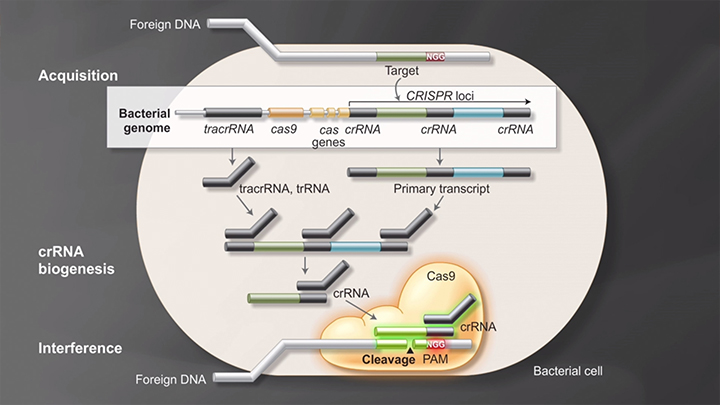Science in 60 CRISPR/Cas9
Script
CRISPR is an acronym that stands for "clustered regularly-interspaced short palindromic repeats." The other term that you often hear associated with CRISPR is CAS, which stands for "CRISPR-associated." CRISPR arrays and CAS genes are essential for adaptive immunity in some bacteria and archaea. Together they enable the organisms to respond to and eliminate invading material, like phage.
CRISPR-CAS systems are diverse, but all incorporate DNA corresponding to genetic material of invaders as spacers and repetitive arrays. These repetitive arrays are transcribed and processed to make guides for nucleases that target and destroy invaders.
The CRISPR system from Streptococcus pyogenes, and in particular a CAS-9 nuclease has been widely adopted as a tool to make site-specific double-stranded DNA breaks. This can be used in vitro, but when used in vivo and introduced into living cells can be used for precise editing and engineering of genomes. Mutations of the nuclease have also increased its specificity in binding-dependent and cleavage-independent uses.
Related Videos
-

Bacterial Adaptive Immunity with CRISPR/Cas9 -

NEB® TV Ep. 7 – Synthetic Biology/ CRISPR -

NEB® TV Ep. 1 – Synthetic Biology

